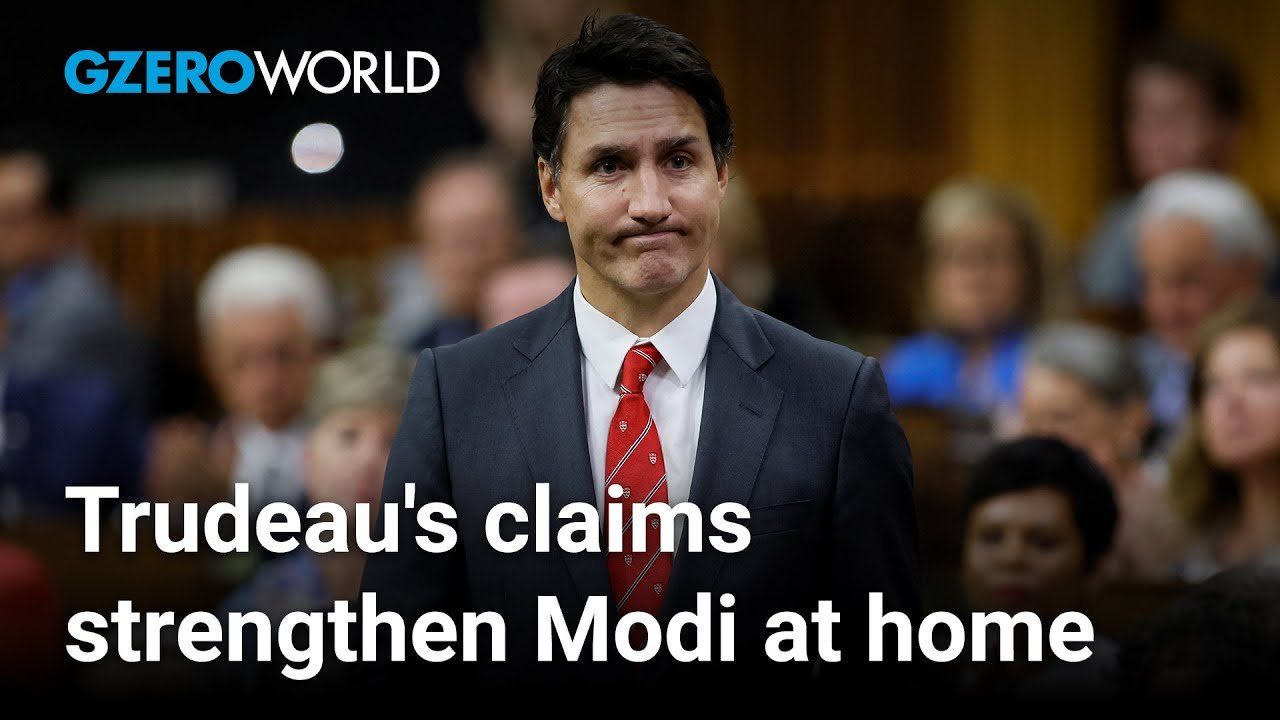GZERO World Clips
India-Canada: Trudeau's "perverse politics" threatens relations, says Samir Saran

India-Canada: Trudeau's "perverse politics" threatens relations, says Samir Saran | GZERO World

India-Canada relations have hit a crisis point following Prime Minister Justin Trudeau’s bombshell allegation in September that India was responsible for the murder of a Sikh leader, Hardeep Singh Nijjar, in British Columbia last June. The fallout was swift: India’s foreign ministry dismissed the accusation as “absurd,” both countries expelled top diplomats, and tensions have escalated significantly.
“Friends don’t do this in public,” Samir Saran, President of the Observer Research Foundation think tank tells Ian Bremmer on GZERO World, “This was something that should have always been in the private mode.”
Relations between the two countries were already tense before the allegations. India has long been pushing Ottawa to be more assertive in curtailing the Khalistan movement within Canada–a separatist movement with the goal of establishing an independent Sikh state in India’s Punjab region.
The Khalistani movement is considered a terrorist organization by the Indian government, and Saran explains it's so problematic to the Indian public that Prime Minister Narendra Modi has broad support to respond forcefully to Canada’s allegations, even within the political opposition. But despite the growing tension, Saran believes there will always be a link between the two democracies.
“I don’t think this is about India or Indians having any problems with Canada,” Saran says, “I think it’s the Trudeau government’s perverse politics being brought into the spotlight in this part of the world.”
In this Quick Take, Ian Bremmer reacts to President Trump’s State of the Union address, calling it “a rehashing of the greatest hits” with little new policy direction.
Small business hiring surged 7% above the 2024 average in December, led by a surprise rally in retail. But with uncertainty still historically high and mounting concerns over tariffs, can this momentum survive 2026? Explore the data behind the resilience of the US small business sector. Get the latest economic insights from Bank of America Institute.